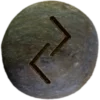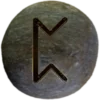Last Updated on June 7, 2025
Table of Contents
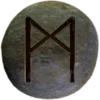
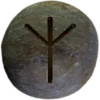
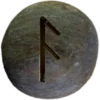
What It Means to Be Asatruar
Asatruar (pronunced, OW-sah-troo-ar) are people who follow Asatru, a modern expression of Norse paganism. They honor the gods and goddesses of the ancient Norse and Germanic peoples. These deities include Óðinn (Odin) (OH-thin), Þórr (THOR), and Freyja (FRAY-yah). The faith centers on the relationships between humans, nature, ancestors, and the divine. Asatru focuses on living with honor, responsibility, and courage.
Many Asatruar do not call it a “religion” in the typical sense. Instead, they see it as a way of life rooted in kinship, duty, and reciprocity. This worldview shapes daily behavior, not just rituals. It encourages people to be true to themselves and their values.
Asatru comes from Old Norse. “Ása” refers to the Æsir (EYE-seer), the main group of Norse gods. “Trú” means belief or faith. So Asatru translates to “faith in the Æsir.” Some groups prefer different names, such as Heathenry, Forn Sed (FOHRN sayth), or Norse Paganism. The word Asatruar describes someone who follows Asatru.
People often write Ásatrú without the accent: Asatru. But the correct Icelandic spelling includes the accent mark. Iceland legally recognized Asatru as a religion in 1973. Today, groups exist in North America, Europe, and beyond. While the beliefs are old, the modern practice adapts to today’s world.
Core Beliefs and Values
Asatru does not have a central scripture like the Bible or Quran. Instead, followers use the Poetic Edda and Prose Edda. These medieval texts contain myths, stories, and poems from ancient Norse tradition. These writings serve as inspiration, not strict doctrine. ![]()
Asatruar value the Nine Noble Virtues. These include courage, truth, honor, fidelity, discipline, hospitality, industriousness, self-reliance, and perseverance. Different groups may list them in different ways. The virtues are not commandments. They are ideals that guide behavior.
Personal responsibility plays a key role. Each person builds their own path. There are no saviors or promises of salvation. One’s deeds shape their honor and legacy. Ancestors matter. Honoring them shows respect and roots you in your heritage. Many Asatruar keep altars or shrines at home. These spaces may hold items such as statues, runes, or family heirlooms.
Asatru rituals are simple and direct. The most common is the blót (BLOHT), a rite of offering. In a blót, people give food, drink, or symbolic gifts to the gods, ancestors, or spirits. Another ritual is the sumbel (SOOM-bel), a round of toasts and storytelling. These acts build community and strengthen bonds.
Community, Identity, and Practice
Asatruar often gather in groups called kindreds, hofs, or troths. These groups provide support, structure, and shared ritual. Some kindreds are family-based. Others are open to seekers. While many practice at home, public gatherings like seasonal festivals are also important. These events often align with the solstices and equinoxes.
The names of the gods and holidays may contain special characters. For example, the letter “Þ” (thorn) in Þórr sounds like “th” in “thunder.” The letter “ð” (eth), as in Óðinn, sounds like “th” in “this.” These are séríslenskur letters—unique to Icelandic.
Asatru does not require belief in myth as literal truth. Many followers view the gods as forces, archetypes, or symbols. Others believe in their literal existence. The approach depends on the individual. The faith is flexible, but grounded in cultural memory.
Modern Asatru faces challenges. Some people misuse the symbols for political agendas. Most Asatruar reject hate and focus on respectful practice and heritage. Asatru continues to grow as it speaks to people looking for ancestral connection, meaningful ritual, and moral clarity. It honors the past but lives in the present. It invites personal growth, communal strength, and spiritual balance.
In short, to be Asatruar means to live with honor, to act with intention, and to stand with your kin—human and divine.
Runes Associated with Asatruar
Elder Futhark runes, like Ansuz, Mannaz, and Algiz, resonate with Asatruar. Ansuz reflects wisdom and communication, connecting to the guidance of gods like Odin. Mannaz symbolizes humanity and social bonds, which are central to Asatruar life. Algiz, a rune of protection, represents spiritual connection and defense, honoring strength and resilience. These runes offer symbolic support for practitioners, guiding them in life’s challenges. ![]()
What It Means to Be Asatruar
To be Asatruar means embracing ancient values and personal strength. They find purpose in honoring family, nature, and gods while living with integrity. They strive to live courageously, stay true to their values, and honor their commitments. Each day, Asatruar aim to balance personal freedom with responsibility, connecting the past with their present lives.

